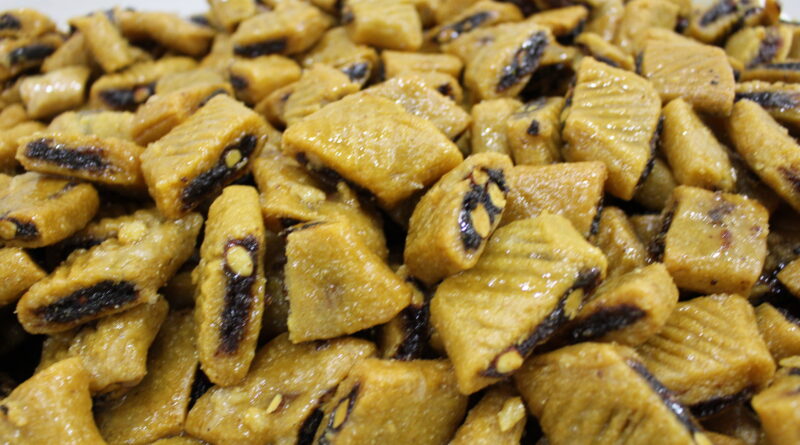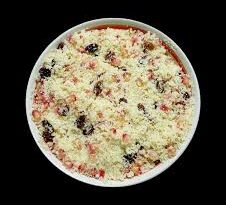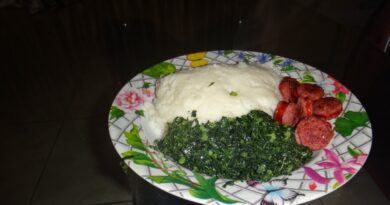Makroudh
Exploring the Sweet Bliss of Makroudh: A Culinary Journey Through Tunisian Delight
Introduction: In the realm of tantalizing desserts that transport the taste buds to distant lands, Makroudh shines brightly as a gem of Tunisian cuisine. This delectable pastry, deeply rooted in tradition and history, offers a symphony of flavors and textures that captivate the senses. From its origins in North Africa to its widespread popularity across the globe, Makroudh stands as a testament to the rich culinary heritage of Tunisia. Join me as we embark on a flavorful journey to unravel the secrets behind this beloved sweet treat.
Origins and Cultural Significance: Makroudh holds a special place in Tunisian culture, where it is cherished as a symbol of hospitality, celebration, and togetherness. The origins of Makroudh can be traced back centuries, with its roots firmly planted in the traditions of North Africa, particularly Tunisia. This pastry has been lovingly prepared and enjoyed by generations of Tunisians, with recipes passed down from mothers to daughters, grandmothers to grandchildren.
The name “Makroudh” is derived from the Arabic word “makarid,” meaning diamond-shaped, which aptly describes the pastry’s distinctive appearance. While it is commonly associated with special occasions such as weddings, religious festivals, and family gatherings, Makroudh is also a beloved everyday indulgence enjoyed with a cup of mint tea or coffee.
Ingredients: The beauty of Makroudh lies in its simplicity, with just a handful of ingredients coming together to create a symphony of flavors. The key components typically include:
- Semolina Flour: Semolina flour forms the base of the pastry, imparting a tender yet slightly crumbly texture.
- Dates: The star ingredient of Makroudh, dates are used to create a sweet and luscious filling that balances the pastry’s richness.
- Olive Oil: A staple of Mediterranean cuisine, olive oil adds moisture and richness to the dough, resulting in a tender and flavorful pastry.
- Ground Nuts: Almonds, walnuts, or pistachios are often used to add crunch and nuttiness to the filling, complementing the sweetness of the dates.
- Spices: A blend of warm spices such as cinnamon, nutmeg, and cloves infuses the pastry with aromatic depth and complexity.
- Orange Blossom Water: Orange blossom water is sometimes added to the dough or the filling, imparting a delicate floral aroma that enhances the overall flavor profile.
Preparation: The preparation of Makroudh is a labor of love, requiring patience, precision, and a keen eye for detail. While there are variations in recipes across different regions and households, the general method involves the following steps:
- Preparing the Dough: Semolina flour is mixed with olive oil and a pinch of salt to form a crumbly dough, which is then gradually moistened with water until it holds together.
- Making the Filling: Dates are pitted and mashed into a paste, then combined with ground nuts, spices, and a splash of orange blossom water to create a fragrant and flavorful filling.
- Shaping the Pastries: The dough is divided into small portions, which are then rolled out into thin rectangles. A strip of date filling is placed along the center of each rectangle, and the dough is folded over to encase the filling, forming a diamond-shaped pastry.
- Frying or Baking: The pastries are either deep-fried until golden brown and crispy or baked in the oven until lightly golden and cooked through.
- Finishing Touches: Once cooked, the pastries may be dusted with powdered sugar, drizzled with honey or syrup, or sprinkled with ground nuts for added sweetness and texture.
Variations and Regional Influences: While the basic recipe for Makroudh remains fairly consistent, there are regional variations and personal preferences that influence the final outcome. In some regions of Tunisia, for example, the pastry may be stuffed with a mixture of dates and nuts, while in others, it may be filled with a combination of dates and figs or apricots. Some versions of Makroudh are flavored with rose water or orange zest, adding a subtle floral or citrusy note to the pastry.
Health Benefits and Nutritional Value: Despite its indulgent reputation, Makroudh offers a surprising array of health benefits, thanks to its wholesome ingredients. Dates are packed with essential nutrients such as fiber, potassium, magnesium, and antioxidants, which promote digestive health, regulate blood sugar levels, and boost immune function. Semolina flour provides complex carbohydrates for sustained energy, while olive oil offers heart-healthy fats and antioxidants. When enjoyed in moderation as part of a balanced diet, Makroudh can be a delightful and nourishing treat for both body and soul.
Conclusion: In a world filled with an abundance of sweet temptations, Makroudh stands out as a timeless classic that transcends borders and bridges cultures. Its delicate balance of sweetness, warmth, and spice speaks to the rich tapestry of Tunisian cuisine, where tradition and innovation converge to create culinary masterpieces. Whether savored during festive gatherings or shared over a cup of tea with loved ones, Makroudh invites us to slow down, savor the moment, and celebrate the simple joys of life. As we indulge in its blissful flavors, we are reminded of the power of food to nourish not only the body but also the spirit, leaving us with memories to cherish and hearts full of gratitude.



